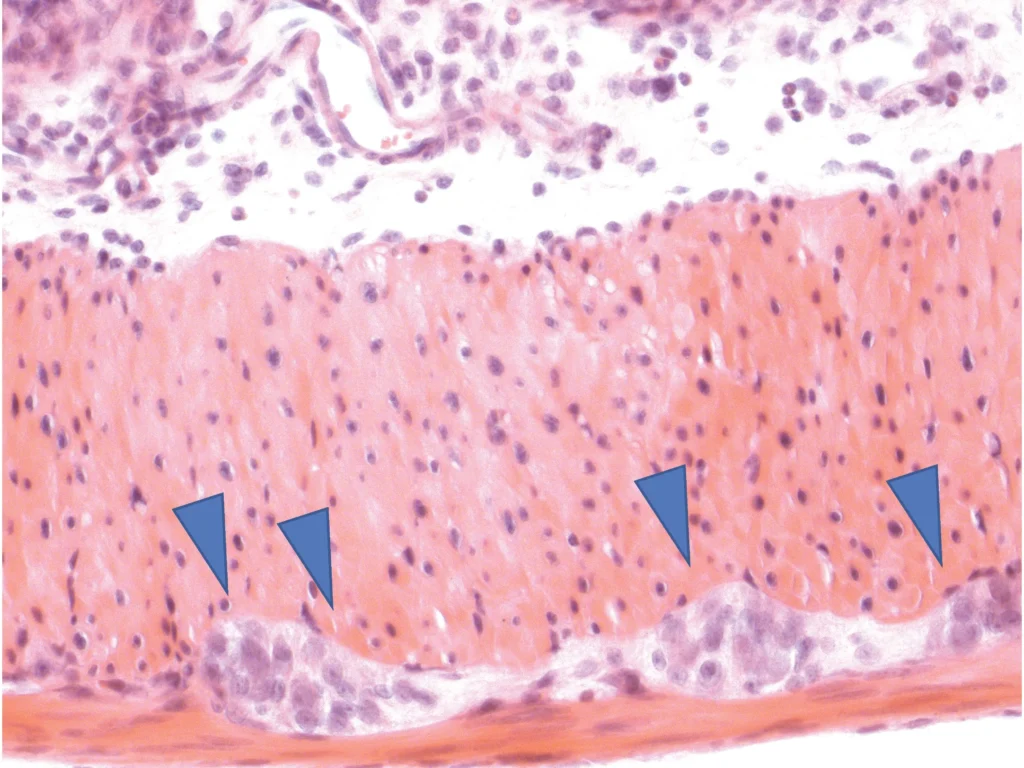Intestinal inflammation: immune cells protect nerve cells after infection
Date

International research team publishes new findings on the functions of the gut-brain axis
In the event of an infection in the gastrointestinal tract, the accompanying inflammatory response may lead to death of intestinal nerve cells. This loss in turn often causes impaired gastrointestinal motility, which is essential for a healthy digestion. While this impairment usually is transient, in some cases problems persist and lead to manifest diseases, such as the so-called postinfectious irritable bowel syndrome. The exact reason for the nerve cells dying off has previously been unclear. An international research team involving Philip Rosenstiel from the Institute of Clinical Molecular Biology at Kiel University (CAU), has now succeeded in describing the mechanism that leads to the death of the nerve cells. Specific immune cells in the gut appear to protect the nerve cells, as the team was able to demonstrate in their current research. The scientists, led by Daniel Mucida, Associate Professor at The Rockefeller University in New York, recently published their results in the renowned scientific journal Cell.
More Information here
